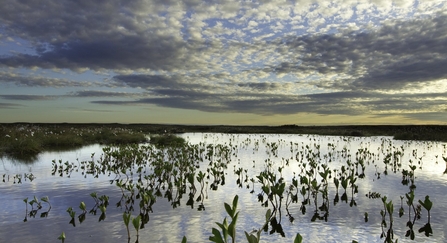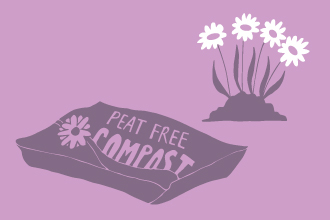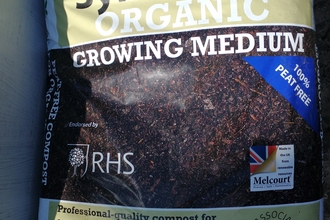
Pool system on peat bog by Mark Hamblin/2020VISION
Despite decades of campaigning against extraction, every year millions of tonnes of peat are still dug up and sold to gardeners and professional growers of fruit, vegetables, and plants. Peatlands are unique habitats with an immense capacity to store carbon, storing twice as much carbon as forests.
On top of this, peatlands are complex ecosystems which are home to a rich biodiversity of plants, mammals, fungi, birds, and reptiles. In the UK at least 80% of our peatland habitats are now damaged, and the millions of tonnes of CO2 released from degraded peatlands now accounts for 4% of the UK’s total annual greenhouse gas emissions. The Wildlife Trusts believe that the needless and destructive practice of peat extraction for horticulture must stop – immediately.
Slow progress
Restoring and protecting the UK’s peatlands is an absolutely vital step we must take in order to address the ongoing nature and climate crises. However, UK Governments have been dragging their heels over this issue for decades, and progress has been painfully slow. In 2011, a series of voluntary targets to phase out peat use were introduced but were ultimately unsuccessful in driving change.
A target to end public sector use of peat in England by 2015 was a far cry from a success; in October 2021, it emerged that public bodies, including Forestry England, were still buying peat. A second voluntary target set by UK Government to phase-out the retail sale of peat by 2020 was also ineffective. In fact, peat sales in 2020 were at an 8-year high. It is clear that voluntary measures to address the issue of peat in horticulture are simply not the way forward.
In May 2021, the UK Government announced its intention to consult on banning the sale of peat and peat containing products in the retail sector by the end of this Parliament (2024). In December, the UK and Welsh Governments launched a public consultation on the issue, which is open until the 18th of March 2022 and which could lead to a ban on peat sales in Wales and England.. This is a huge step in the right direction for the UK’s peatlands, and if ambitious steps are taken by UK Governments, the outcomes for nature and climate could be extraordinary. However, the outcomes of this consultation are by no means guaranteed.
If alternatives to a ban are introduced – such as mandatory labelling or point of sale measures on bags of compost – the UK’s peatlands , will continue to disappear. Furthermore, the majority of the peat sold in the UK comes from the Republic of Ireland. Peat is also imported from the rest of Europe, including Baltic countries such as Estonia. The UK therefore ‘offshores’ its CO2 emissions to the countries who extract peat for sale in UK markets.
Any measures introduced that do not result in an outright ban of peat sales will fly in the face of Governments’ own commitments on nature and climate. Time is running out; UK Governments must be made aware that the voluntary approach to this issue simply does not reflect the urgency of the situation, nor does it reflect the unique ability of peatlands to address species decline and to mitigate against climate change.







